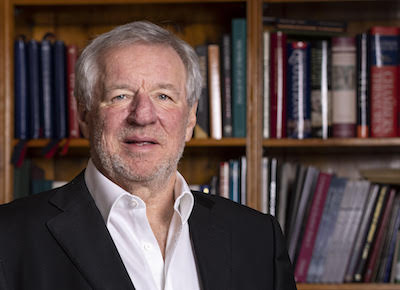AssetCo chairman Martin Gilbert admitted on Wednesday that “the business remains materially behind plan” amid “gloom” in the fund industry and that “we remain behind where we want to be in terms of asset growth.”
Gilbert said the six months ended March 31, 2023, saw “a period of unrelenting market pressure” and that AssetCo’s group of companies “generally suffered outflows over the period, when inflows had been the expectation.”
AssetCo reported that its assets under management rose to £13.8 billion in the six months to March 31, up from £9.9 billion at the same stage of the prior year.
However, excluding assets at its Parmenion business, AssetCo reported £3.26 billion under management.
For the six months, AssetCo said revenue rose to £8.3 million from £1.3 million and the group reported a loss before taxation of £13.8 million, including £11.7 million of administrative expenses.
AssetCo shares fell about 8% on Wednesday and are down about 30% so far this year.
Gilbert wrote: “The six months ended 31 March 2023 saw a period of unrelenting market pressure. Although most stock markets saw some uplift in value, investor sentiment was weak and the collapse of Silicon Valley Bank, followed swiftly by the rescue of Credit Suisse, did nothing to calm the nerves of investors.
“Fund flows across the industry were consistently negative for the period, with outflows from UK Equity funds (currently AssetCo’s largest exposure) actually increasing in Q1 2023 from what were already record levels in 2022.
“With overall industry figures negative, the only respite from the gloom was in Global Equity funds where inflows turned tentatively positive in Q1 2023.
“The AssetCo Group of companies was sadly not immune from these pressures and the group generally suffered outflows over the period, when inflows had been the expectation.
“The general rise in markets has cushioned the effect to some extent, but it is fair to say that we remain behind where we want to be in terms of asset growth.
“Thankfully the Global Equity asset class is one where we have been bucking the trend for some time with the Saracen Global Income and Growth Fund and the more supportive environment was welcome.
“Progress has been made in delivering cost savings and the revenue pressures have moved us to go further in this regard.
“Savings of over £1m have been identified on top of those already targeted and being actioned at year end, leading us to a projected run rate costs target of £15m for the active equities business at River and Mercantile (R&M), which eliminates more than £16m from the cost base inherited in the River and Mercantile acquisition.
“We also reached agreement to sell River and Mercantile’s loss-making US business earlier this year. The deal completed at the end of May and will result in a modest revenue share benefit for a period going forward, while eliminating net losses which amounted to £0.4m in this reporting period.
“We intend to roll the Saracen business into SVM in the near future and the ground is being laid for the full-scale integration of all of our active equities businesses under the River and Mercantile brand.
“In the meantime, cost savings at SVM aim to move that business (considered as a stand-alone) to profitability on a run rate basis around financial year end, while Saracen is expected to generate good revenues this year as its flagship Global Income and Growth Fund continues to gather assets.
“It has been encouraging to see net inflows into the Rize ETF business over the period, which bucks the general trend in conventional fund markets and points to the on-going potential for this product set.
“That said, the business remains materially behind plan, its thematic focus having been set back by the advent of war in Ukraine and subsequent market jitters.
“We have therefore decided to take the prudent approach of writing down the holding value in our balance sheet by c.£5m to £12m. We continue to see real potential in this business, but it is emerging later and slower than we had hoped.
“The market for infrastructure funds has been particularly challenging against a backdrop of rising rates and a crisis for UK pension funds and insurers in the Liability Driven Investment (LDI) market.
“This has proven particularly unhelpful for River and Mercantile’s own infrastructure fund as a UK only income vehicle and new commitments have not been forthcoming as hoped, although a pipeline of potential commitments is being actively developed.
“Recognising this slower and later business development and taking a conservative position, we have elected to make a provision of £1.7m against assets held on the balance sheet for our infrastructure business which have been advanced in expectation of future profits …
“As was the case with the previous full year’s result, it is difficult to make a direct comparison to the previous six-month period.
“The six months to 31 March 2022 did not include the businesses of River and Mercantile and SVM, whereas (with the exception of the month of October in the case of SVM which was acquired at the end of October) both businesses are fully included in the six months to end March 2023.
“This brought an additional £11.7m of administrative expenses into account for the current period, compared to the six months ending 31 March 2022. Some £3m of expenses in the current period were one-off costs, almost half relating to re-structuring.
“We have elected to write down the holding value of Rize ETF (by £5m) and to make a provision (of £1.7m) against certain assets held on the balance sheet for River and Mercantile’s infrastructure business. In both cases this reflects the later and slower development of these otherwise attractive businesses in the current market environment.”
